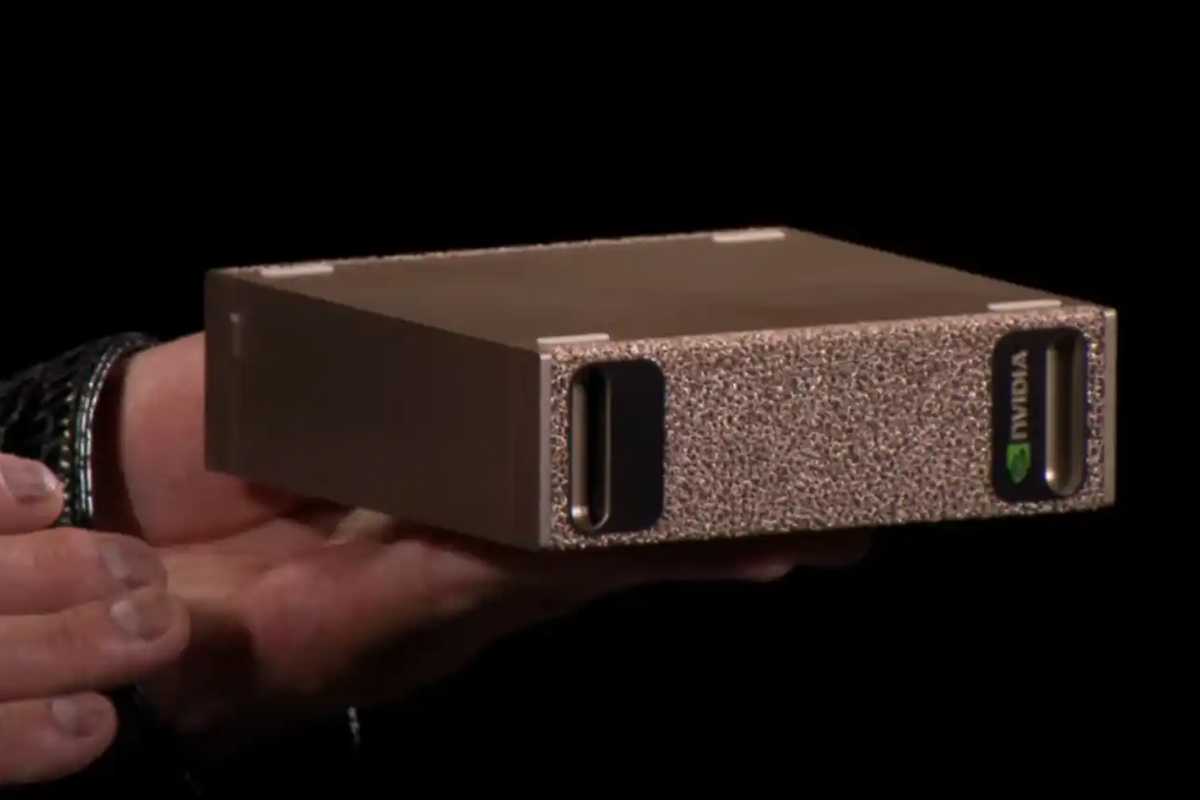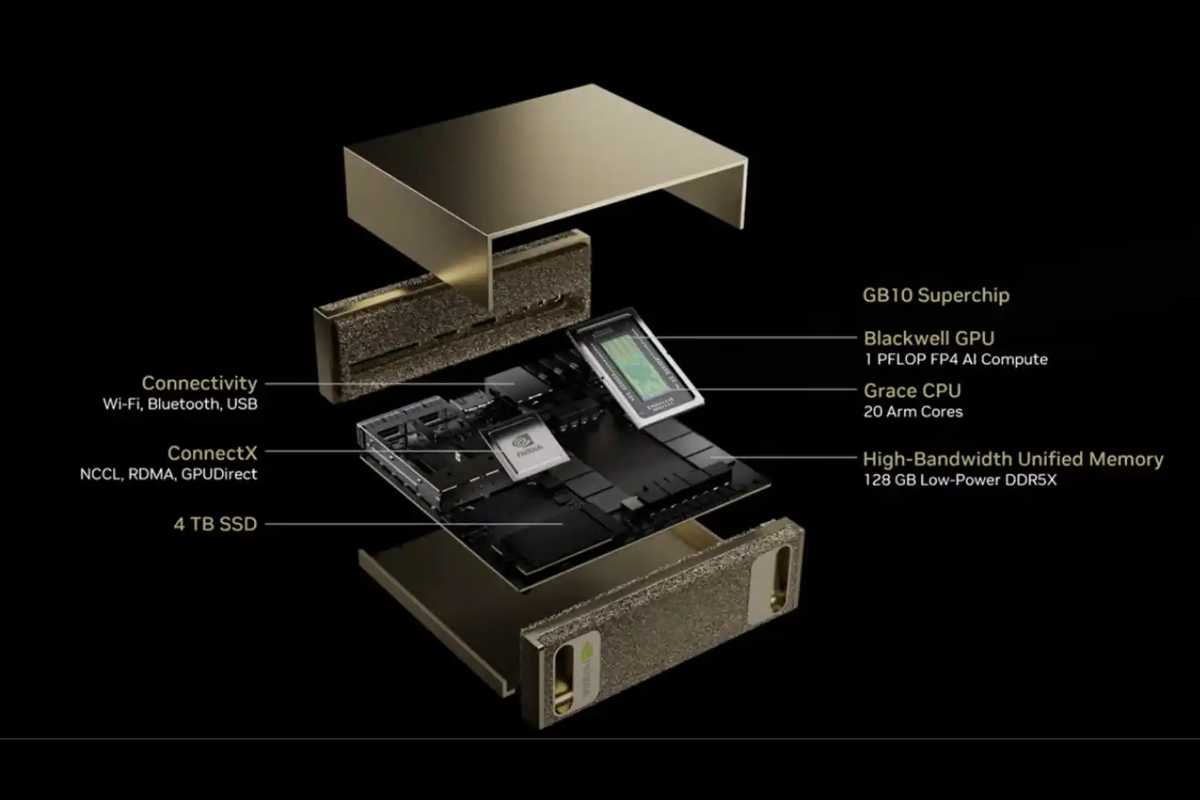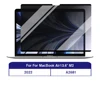Just hours after Dell decided all on its own to rename its laptop line with Pro and Pro Max monikers, Nvidia also took a page from Apple’s playbook with its new “personal AI supercomputer.” No, it’s not called the Nvidia mini, but it does have a certain simpatico with the Mac mini.
Nvidia didn’t share the exact specs for what it’s calling Project Digits, but the device fit neatly in CEO Jensen Huang’s palm during its unveiling. Next to a monitor and keyboard (above), it appears to be slightly bigger than the Mac mini with a boxier and more industrial design.
Nvidia didn’t provide benchmarks for the GB10 chip, but did say it’s capable of a petaflop of FP4 floating point performance and able to “run up to 200-billion-parameter large language models,” likely beyond the capabilities of the $599 Mac mini. However, Nvidia isn’t selling it to just anyone. The goal of Project Digits, Huang said, is to put “an AI supercomputer on the desks of every data scientist, AI researcher and student.”

Nvidia
To that end, the computer starts at $3,000 and comes with a 20-core GB10 Grace Blackwell Superchip and 128GB of unified memory. Configuring a Mac mini with the M4 Pro chip, which has a 14-core CPU, and 64GB of RAM, costs $2,499 with 1TB of storage. A 1TB Mac Studio fitted with a 24-core M2 Ultra and 128GB of RAM brings the price to $4,799.
While it takes several M4 Mac minis to even reach a teraflop of performance, the M2 Ultra in the Mac Studio already tops 20 teraflops. And Apple is expected to upgrade that machine to the M4 family of processors sometime this year, which will obviously bring a major performance boost. And we assume the power draw will be many times that of the Mac mini or Mac Studio (or Mac Pro for that matter).

Nvidia
Of course, we’re comparing Apples to oranges here. Nvidia’s Mac mini clone isn’t meant for everyday work. Digits is kitted out with Nvidia’s full AI software enterprise platform, including “an extensive library of Nvidia AI software for experimentation and prototyping, including software development kits, orchestration tools, frameworks and models.”





